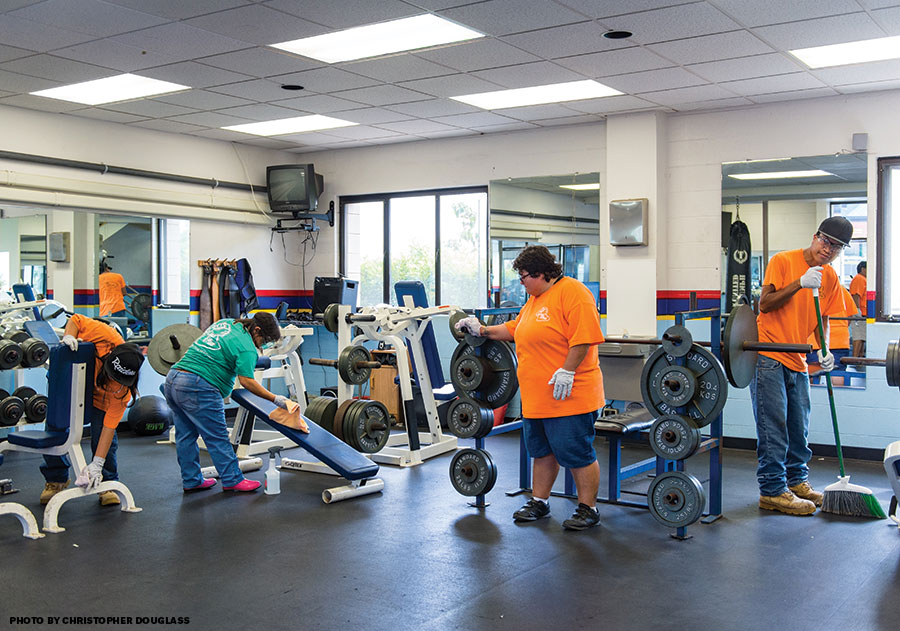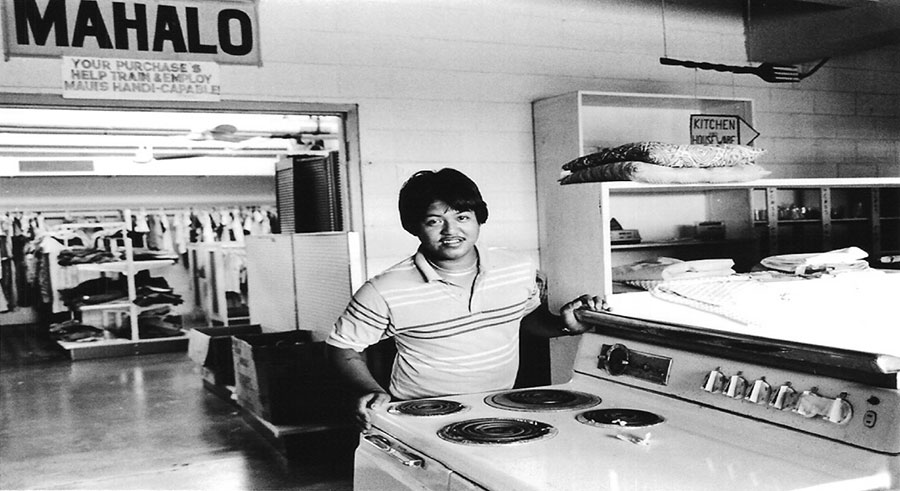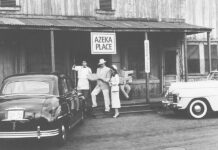Story by Sarah Ruppenthal | Photography by Christopher Douglass
Matt Wanderscheid has never had a case of the Mondays.
While many of us start the workweek with a groan, he looks forward to it—even on the groggy mornings when his alarm clock rousts him out of bed at 2 a.m. “Yeah, it’s early, but I don’t mind,” Matt says, flashing a smile. “I love my job.”

So much, in fact, that his mom, Debbie, had those four words emblazoned on the back of a T-shirt and gave it to her son as a Christmas present. On the front: the logo of Matt’s employer, Ka Lima O Maui, a nonprofit organization that provides job training and employment opportunities to adults with physical and mental disabilities. For Matt, Ka Lima’s motto, “achieving independence through self-reliance,” resonates deeply. “I’m glad I can earn my own money,” he says. “Every day I get to work is a blessing.”
Like Matt, Chantal Ratte, Ka Lima’s executive director, has plenty of bright spots in her workday. “Sometimes the clients wait for me in the parking lot so they can open my car door and say ‘good morning,’” she says. “It’s a daily reminder of what we are accomplishing here.”

Ka Lima made its debut in 1955 as a vocational rehabilitation program for recovering tuberculosis patients. For the first few years, participants rebuilt their lives—financially and otherwise—making crafts to sell, collating documents for local businesses, and refurbishing airplane passengers’ bulky headsets in a modest house-turned-workshop in Kahului. The organization soon expanded to serve a larger population of Maui residents in need of job training, and added more work projects to its repertoire, including a woodshop, thrift store, and a plant nursery (all three were phased out in the 1980s and early 2000s, when an influx of retailers made it harder to compete). Today, the nonprofit is Maui’s largest employer of individuals with disabilities—people who might not otherwise have had an opportunity to enter the workforce.





